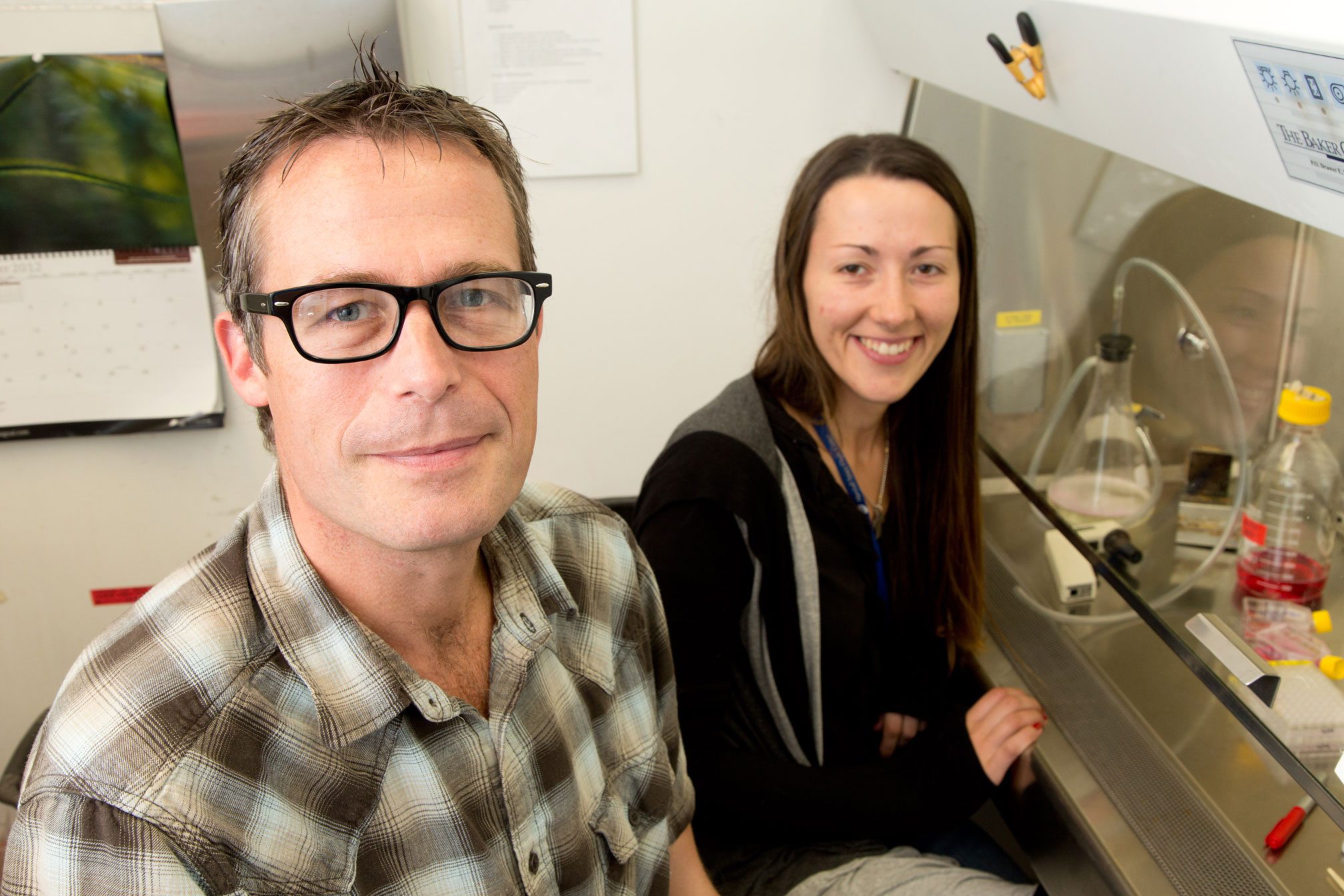Athens, Ga. – Researchers at the University of Georgia recently received a five-year $1.8 million grant from the National Institutes of Health to study cryptosporidium, a parasite that causes the diarrheal disease cryptosporidiosis.
Severe diarrhea is the second leading cause of death in children under 5 years of age, killing approximately 760,000 every year, according to the World Health Organization.
Cryptosporidium, commonly known as crypto, and three other pathogens-rotavirus, Shigella and E. coli-are the most common causes of diarrhea worldwide. While scientists have made great progress in combating these other pathogens, research on crypto has been slow.
“There is no fully effective drug or vaccine for crypto,” said Boris Striepen, Georgia Research Alliance Distinguished Investigator in the Franklin College of Arts and Sciences and principal investigator for the grant. “This project will develop the technology to genetically analyze and modify the organism so we better understand what we need to do to treat and prevent disease.”
Unlike other common pathogens, crypto is notoriously difficult to study in a laboratory. Cultures of the parasite generally only last for a few days, and model organisms like mice are not readily infected by the species of crypto that most commonly affects humans.
Striepen and his colleagues will develop new ways to detect the organism in cultures and animals by developing reporter genes, specially-designed pieces of genetic code that trick the parasite into emitting light or producing a color, thus making crypto stand out against normal cells. This technique will also allow researchers to study the infection as it spreads and determine how it responds to different drug treatments.
“Many pharmaceutical companies are interested in testing compounds they have developed, but only if there is a reasonable method to evaluate their efficacy,” said Striepen, who is also a member of UGA’s Center for Tropical and Emerging Global Diseases. “These kinds of tests and detection methods are an entry ticket into greater industry participation.”
Genetic modification of crypto may also open the possibility of new vaccines, which could potentially spare small children who are at greatest risk for life-threatening diarrhea and dehydration.
Children develop a natural immunity to the disease after exposure, indicating that the immune system may be trained to recognize and eliminate crypto.
“Once we have the ability to reach into the genome of the organism and modify it, we can make mutants that will help to mimic this natural immunity,” Striepen said. “We could potentially make weakened parasites that could stimulate the immune system’s defenses, but would not cause disease.”
While healthy individuals with access to clean drinking water and quality medical care will generally recover from exposure to crypto in one to two weeks, it can be deadly for children and those with weakened immune systems.
But crypto is still a dangerous parasite, even in developed countries. A 1993 outbreak in Milwaukee originating at a water treatment facility killed an estimated 69 people and sickened more than 400,000, according to the Centers for Disease Control and Prevention. This single event-the largest documented waterborne outbreak in U.S. history-cost the state $96.2 million in medical costs and productivity losses.
Crypto is found frequently in recreational waters like rivers, springs, ponds and streams, but its tough outer shell also allows it to survive in chlorinated pools, hot tubs and fountains. It is one of the leading causes of waterborne illness in the U.S., according to the CDC, and small outbreaks are common.
“We have already done some important preliminary work on this project, and I’m confident that we can finally begin to make progress against this understudied parasite,” Striepen said.
Research reported in this publication is supported by the National Institute of Allergy and Infectious Diseases of the National Institutes of Health under award number 1R01AI112427.


